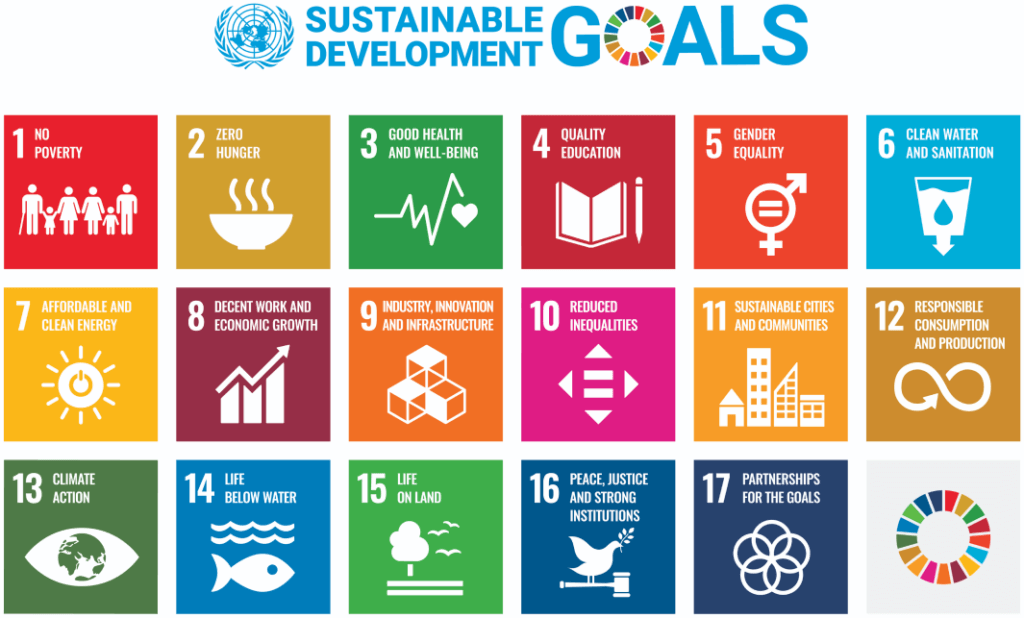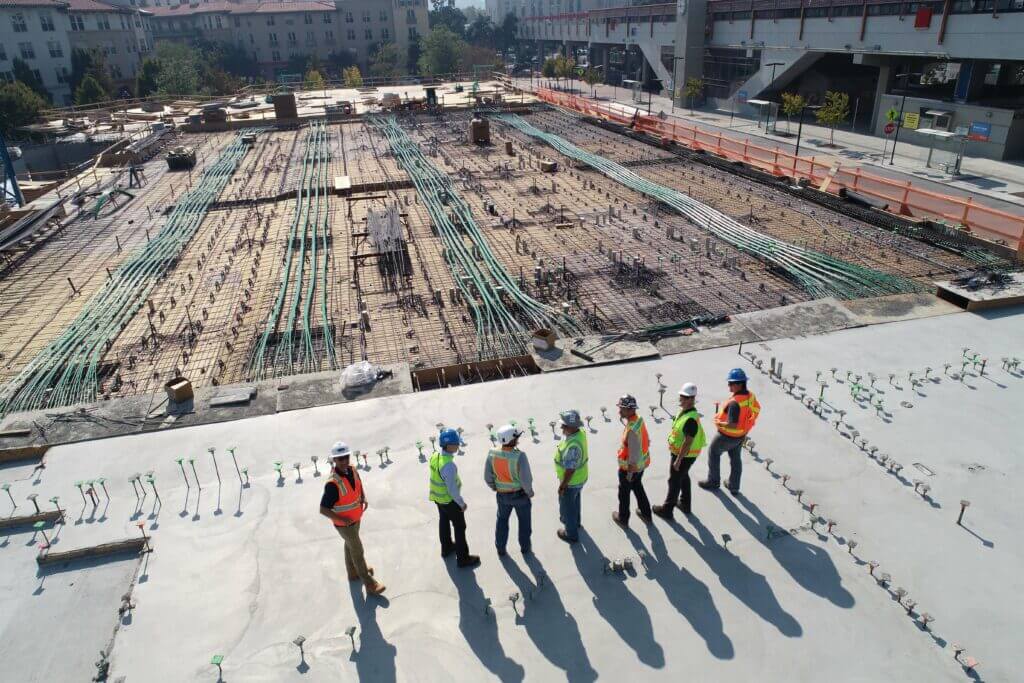Sustainability and sustainable development have been hot-button issues in recent years. Countries in the MENA region have been quick to embrace the UN SDGs and incorporate them into national policies.
UAE Vision(s) 2021, 2071, KSA Vision 2030, and Oman Vision 2040, among others all incorporate the UN SDGs and provide a high-level policy that guides regulations and local development.
This guidance has driven the market towards more sustainably-minded projects. More and more industrial entities, construction companies, developers, and businesses are looking to implement sustainable policies of their own.
Related Read: The Role of the UAE Construction Industry in Achieving SDG Goals
However, even with all these positive strides, something that is sometimes touched upon, but rarely acted upon is the concept of sustainable procurement.
It is estimated that over two-thirds of a company’s impact is found within its supply chains. This simple fact makes the procurement department the single most important tool in the drive toward sustainability.
The following article will explore the definition of sustainable procurement, its importance, why it should be implemented at all levels, examples of successful implementation, and how the MENA region companies can get involved.
What is Sustainable Procurement?
Somewhat self-evident, sustainable procurement is the process by which a company seeks to procure goods and services sustainably.
In other words, it is the process of integrating sustainability and CSR ideals into your procurement process.
Functionally, sustainable procurement is the integration of sustainability-focused metrics into your procurement process, instead of simply focusing on the up-front cost.
A common misconception in the MENA region is the fact that sustainability refers only to environmental sustainability.
However, sustainability covers a wide array of topics, including environmental issues, social concerns, internal governance, employee well-being, innovation, business continuity, process efficiency, waste reduction, and future-proofing, among others.
Sustainability is all-encompassing and strategically beneficial for businesses.

Why is Sustainable Procurement Important for the Middle East?
In recent months, much has been made of the ambitious sustainability goals set by MENA countries. However, even the least ambitious of these goals cannot be achieved without sustainable procurement being implemented on a wide scale.
Supply chains are the biggest source of impact, emissions, and risk for businesses, and must be addressed as a priority.
The selection of adequate suppliers/vendors is extremely important, as the wrong supplier can open companies up to liabilities as legislation evolves to catch up with policy. Poor due diligence ultimately impacts business growth and longevity and reduces the viability of businesses over the medium and long term.
As countries begin this transition towards more sustainably-minded legislation, the companies most at risk include:
- Oil and Gas
- Mining
- Industrial manufacturing
- Construction and Real Estate Development
- Power generation
- Financial Services
The market has already begun trending in this direction. Larger companies are now implementing robust ESG and CSR policies including sustainable procurement programs.
Stock exchanges in Abu Dhabi, Dubai, Qatar, and Jordan already have ESG reporting guidelines that will soon become requirements.
MENA clients and consumers are now more cognizant of environmental, social, and sustainability issues, and prefer to work with companies that share these ideals.
It is absolutely essential that businesses plan around these changes to ensure they are not left behind.
Why implement Sustainable Procurement?
The implementation of sustainable procurement practices is beneficial to both SMEs and larger corporations. Implementing a sustainable procurement program can have wide-ranging benefits which include but are not limited to:
- A positive image and reputation
- Lesser dependency on depleted resources
- Higher staff retention and attractiveness for new employees
- Efficient production due to superior technologies and better-skilled staff
- Superior insight into market preferences and opportunities
- Advanced risk control against losses (e.g. environmental accidents, scandals, bad publicity, etc.)
- Lower burden from changes in legislation
- Enhanced corporate social responsibility
- Increased efficiency of internal business dynamics
- Creates business partnerships with other sustainable businesses
- Introduces global cooperation and growth in impact and influence
Academic and industry research has proven time and again that enhanced tracking and disclosure of sustainability topics both internally and across a company’s supply chain is beneficial. On average companies that tracked and disclosed ESG performance achieved:
- Higher Valuations
- Lower Costs
- Increased access to funding
- Better Performance
It’s all well and good to claim that implementing sustainable procurement will help your business, but to further stress this point, according to modeling conducted by the World Economic Forum, the implementation of sustainable procurement programs could:
- Increase revenues by 5-20%
- Decrease supply-chain costs by 9-16%
- Increase brand value by 15-30%
The above does not take into account the potentially massive increases in customer health, laborer welfare, and improved working conditions. It also does not take into account the significant decrease this type of policy will have on your business’s environmental impact.
Studies have also shown that enhanced scrutiny of supply chains provides internal benefits to the businesses that implement them.
These benefits include:
- Understanding the business landscape and its impact on your company over the short-, medium- and long-term
- Increased data collection, and quality to enhance decision making
- Identify areas of concern and address risks before they become an issue
- Informing stakeholders, shareholders, and directors of potential risks
- Provide an enhanced vision for the development of company strategy
- Develop confidence in the viability of the business’s long-term
Sustainable procurement is an absolute necessity for businesses seeking to enhance their longevity, protect themselves from risk, and maximize their profitability.
Sustainable Procurement Success Stories
The most famous example of a successful sustainable procurement program is Nike. The activewear giant was on the brink of collapse in the late 1990s due to the lax oversight of its outsourced manufacturing. The public was shocked and dismayed by reports of Indonesian workers subcontracted by Nike earning as little as 14 cents an hour.
The flames of outrage were further fanned when disturbing allegations of abuse were uncovered, including stories that a Vietnamese sub-contractor abused women until they collapsed for failing to wear regulation shoes.
What saved NIKE, was the vision of its then-CEO, Phil Knight. “The Nike product has become synonymous with slave wages, forced overtime, and arbitrary abuse,” Knight said in a public address at the time. “I truly believe the American consumer doesn’t want to buy products made under abusive conditions.”
In response to the public outcry, Nike raised the minimum wage it paid workers, improved oversight of labor practices, as well as ensuring adequate air quality within its facilities. Crucially, Nike also documented its progress and reported it publicly. Nike remains transparent about its supplier selection process and is now considered even more transparent than other competing brands.
Nike was able to react to changes in public sentiment, regulations, and increased scrutiny to rebound and retain its spot near the top of its field. Many companies are not so lucky and fail to implement robust sustainable procurement practices in time.
How can you implement sustainable procurement in the Middle East?
Sustainable procurement is still relatively inaccessible, with many companies in the Middle East being ill-equipped to put in place the proper measures, mechanisms, and policies to develop a robust sustainable procurement protocol. This is where Oscar can help!
Oscar is a first-of-its-kind SaaS solution in the MENA. Oscar automates sustainable procurement for enterprises by assessing the sustainability performance of suppliers on behalf of our clients. This allows our clients to easily align with the industry shift towards sustainable development.
Oscar’s suite of due diligence protocols can support any type of business. These protocols were developed based on extensive research into global, regional, and local sustainability reporting standards, as well as consultations with leading sustainability experts. The due diligence protocols were developed in line with the following KPIs/standards/guidelines/best practices:
- UN SDG KPIs
- UN Global Compact
- GRI Reporting Standards
- SASB Reporting Standards
- IFC Disclosure Guidelines
The protocols are also simplified to remain accessible to suppliers that may have not had to provide this type of information. The results of an Oscar assessment can also be utilized within a company’s internal sustainability reporting.
Using Oscar, clients can make informed decisions to source and select credible suppliers and proceed to RFP 4X faster.
The platform is the only one developed specifically for the MENA region, taking into account local culture, business practices, and sensitivities.
Request a demo for more information on Oscar services.

